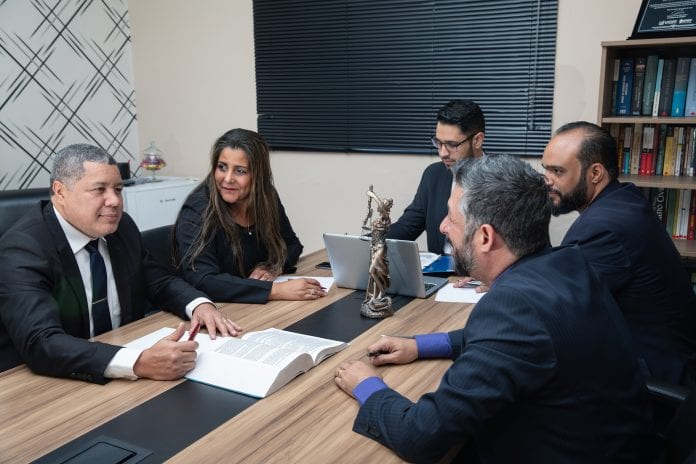Table of Contents - Jump Ahead:
In the State of California, the law states that if you own property, your property will need to go through probate court at the time of your passing. However, establishing a family trust can be very beneficial for your loved ones, as it allows the ability to transfer assets without the need to enter probate.
*This article was updated 12/7/21.
As Yahoo Finance explains in “What Is a Family Trust and How Do You Set One Up?”, a family trust is a trust you create to directly benefit your family members financially. When done correctly, a family trust will facilitate the transfer of assets to heirs and/or beneficiaries without the time and stress of probate court.
General Terms You Should Be Aware Of
As a legal arrangement, a California family trust will allow a person to transfer the management of assets or property to a third party, who then manages these for the benefit of others. The three parties involved in a trust arrangement are the grantor, the trustee and the beneficiaries:
- The Grantor is the person who creates the trust and transfers his/her/their assets into it. The grantor(s) also has the authority to name the trustee and potential beneficiaries.
- The Trustee is a party who has been designated to manage the assets in the trust for the beneficiaries. A trustee can be a single individual, as well as two or more joint trustees. A trustee can also be a business entity, such as a trust management organization or a bank. It should also be noted that beneficiaries can also be designated trustees. A grantor can serve as a trustee when creating a revocable living trust.
- The Beneficiaries get some type of financial benefit from the trust. Typically, this will involve a partner or spouse, children, grandchildren, or other relatives. Additional beneficiaries can involve charitable organizations. It should also be noted that the grantor can also be a beneficiary.
For the purposes of a family trust, it’s just your family members who are beneficiaries.
Types of Trusts
Trusts are usually classified based on the degree of control the grantor will have over the property or assets in the trust. Family trusts are a type of living trust, which means it will be created during your lifetime. The two types of living trusts are:
- Revocable Trusts – which provide the grantor the opportunity to revoke, amend or cancel the trust. In the event that the trust is revoked, all assets and property in the trust will be returned to the grantor. Revocable trusts can be changed or terminated at any time, while the grantor is alive.
- Irrevocable Trusts – which are permanent legal documents. These trusts preclude grantors from being able to obtain their assets in return, without first obtaining the permission from the trustee and/or beneficiaries.
- Special Needs Trust – Establishing a special needs trust ensures a person will still qualify for certain government benefits they require during their lifetime while also receiving funds in a discretionary account for their benefit.
As a subcategory of a living trust, with a revocable family trust, you can be your own trustee as well as name successor trustees to take control, in the event you become incapacitated or pass away. If it’s an irrevocable trust, you must designate another person to act as the trustee.
Key Differences Between a Revocable Living Trust and an Irrevocable Living Trust
With a revocable family trust, you will be able to accomplish the following:
- Maintain privacy. As beneficiaries are able to avoid probate court, there is no need to make public the assets and debts you have accrued at the time of your death. There will also be no public record of where your assets went.
- Avoid probate. A valuable benefit of a family trust is that beneficiaries will be able to avoid the time and expenses associated with probate court.
- Protection of assets. A family trust can preserve assets for individuals who are not able to manage the assets themselves. This can include beneficiaries that are disabled, underage, or are financially irresponsible.
An irrevocable family trust will be able to offer the aforementioned benefits, with the inclusion of the following:
- Circumvent estate taxes. With an irrevocable trust, the grantor will no longer have the title of his or her property. Once the grantor has passed away, the property will not be included in the estate for state and federal estate tax purposes. In many cases, this will be applicable to those with a significant amount of assets and wealth.
- Protect assets from creditors. When the title to a property has been placed under the name of a trustee, the property will no longer be subject to creditor claims of both grantor and beneficiaries.
- Aiding in the qualification for Medicaid. If the grantor needs nursing care, he or she may be able to enable qualification for these benefits.
Creating a Family Trust in California
Setting up a family trust is essential a two-step process:
- Creating and developing a trust agreement; and
- Transferring the property and assets into the trust
Speak to a Well-Versed Attorney
To summarize, a family trust will allow certain property to be managed by a third party in accordance to your instructions for your beneficiaries. Family trusts allow you to add conditions, such as a child can’t use the money, until they complete college or reach a certain age. Moreover, family trusts are beneficial to those who have a child who requires specialized medical care.
A family trust is a useful tool when it comes to estate planning, especially if you want to avoid probate. When transferring the title of assets to a family trust, this will mean that they will no longer be subject to probate. Finally, you can also use an irrevocable family trust to protect assets from creditors, in the event that you’re sued.
If you are considering creating a family trust, speak with an experienced estate planning attorney at the Law Offices of Robert H. Brumfield, P.C. to make certain that this type of trust is right for you, as there are several types of trust options you can use in estate planning. Some of these trusts have extremely specific purposes, while others are more general. An estate planning attorney can help you compare different trust options to help you determine if a family trust is right for your estate plan. Consider contacting the Law Offices of Robert H. Brumfield, P.C. today for more information.




































